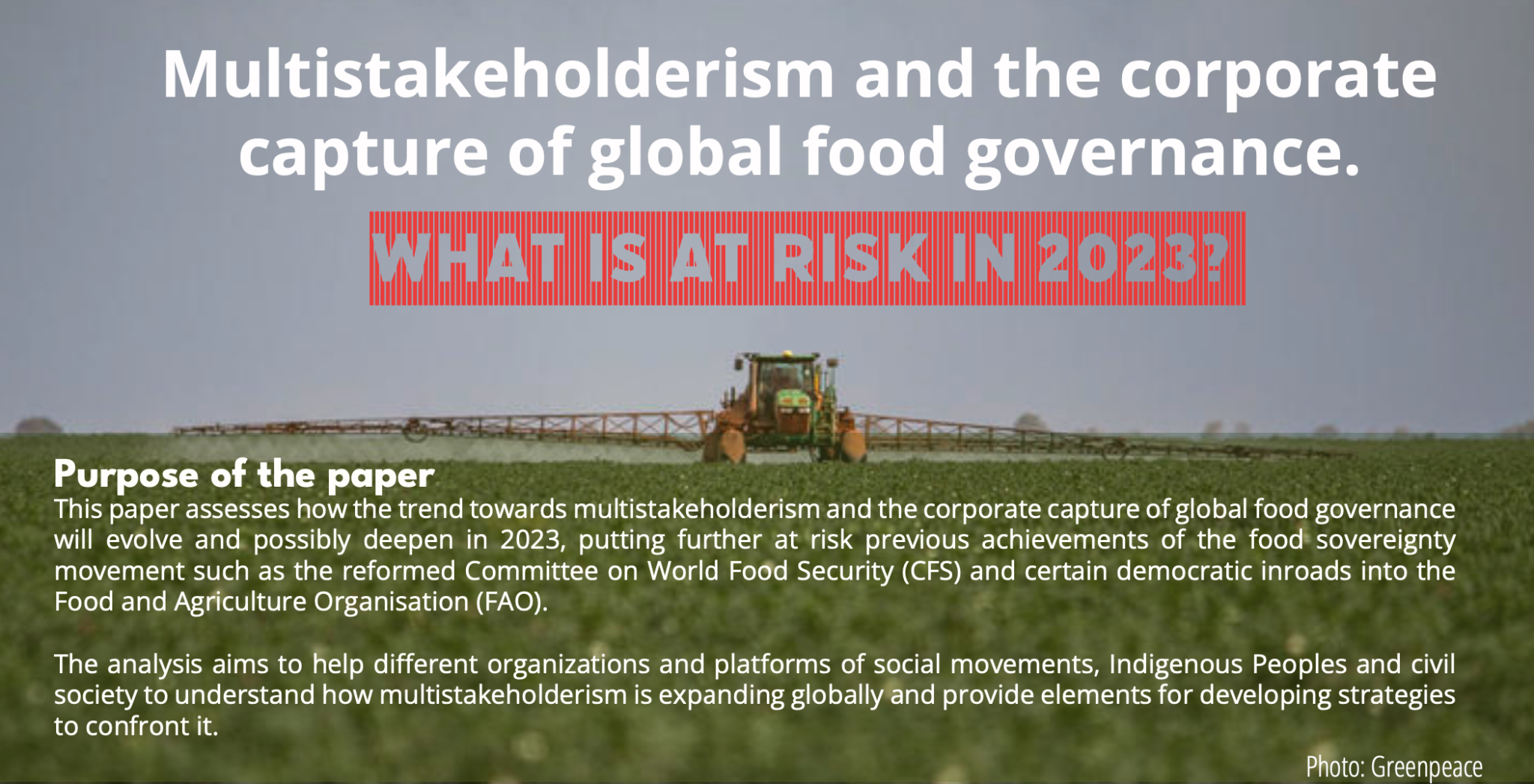Rome, Italy. 11 May 2023 – Social movements, Indigenous Peoples, and civil society organizations are standing firm in their opposition to the corporate capture of global food governance and multistakeholderism, as the UN Food Systems Summit (UNFSS) advances its agenda. This opposition was previously demonstrated through successful counter-mobilization efforts in 2021, and will continue as the UNFSS prepares for the Stocktaking Moment conference in Rome from 24-26 July 2023.
The Liaison Group, which facilitated the global counter-mobilization against the UNFSS in 2021, has published a new analysis report assessing the processes surrounding the upcoming UNFSS Stocktaking Conference. The report highlights how multistakeholderism and corporate influence may deepen in 2023, potentially putting at risk the achievements of the food sovereignty movement, the reformed Committee on World Food Security (CFS), and certain democratic inroads within the Food and Agriculture Organisation (FAO).
Multistakeholderism, or “networked multilateralism,” is a governance proposal that enables the corporate capture of global decision-making. This approach blurs the distinctions between public interest and corporate profit, between the rich and the excluded, and between governments and companies. The UNFSS and its Coordination Hub are advancing this agenda despite widespread criticism from small food producers across the world and organizations representing those most affected by hunger and malnutrition.
The report’s key questions and messages include:
How is multistakeholderism promoting the corporate capture of global food governance?
- Corporate power, industrialization, and market concentration in food systems have advanced tremendously, fueling opposition from local communities, social movements, and Indigenous Peoples against these dangerous trends and policies.
- Multistakeholderism facilitates corporate takeover of global decision-making, blurring lines between public interest and corporate profit.
How is the follow-up to the UN FSS consolidating multistakeholderism?
- The institutionalization of UNFSS is advancing, with a new parallel structure to the UN Committee on World Food Security (CFS) is being built and multistakeholderism being promoted at the expense of multilateralism and human rights accountability.
- The CFS has a unique structure and mandate which is crucial to ensure that global food governance remains inclusive, coherent, and focused on addressing the root causes of food insecurity and malnutrition.
Comprehensive open-door policy for the corporate sector – is this FAO’s role?
- In recent years, the FAO has prioritized multistakeholderism and an open-door policy for corporate actors. This trend is expected to continue, with the partnership between the FAO and the World Economic Forum in September 2022 being one notable example.
- Many platforms and initiatives from the UNFSS are also involved in FAO’s World Food Forum (WFF), which will take place in Rome in October 2023.
- The growing corporate influence within the FAO and its shift towards a global market value chain model raises concerns, as there is a lack of a strong accountability framework, clear transparency rules for engagement, and effective safeguards against conflicts of interest.
For more information on the Liaison Group’s new analysis report and the ongoing efforts to contest the corporate capture of global food governance, please visit https://www.foodsystems4people.org/wp-content/uploads/2023/05/EN_Analysis-report-2023_FS4P.pdf
Report HERE



